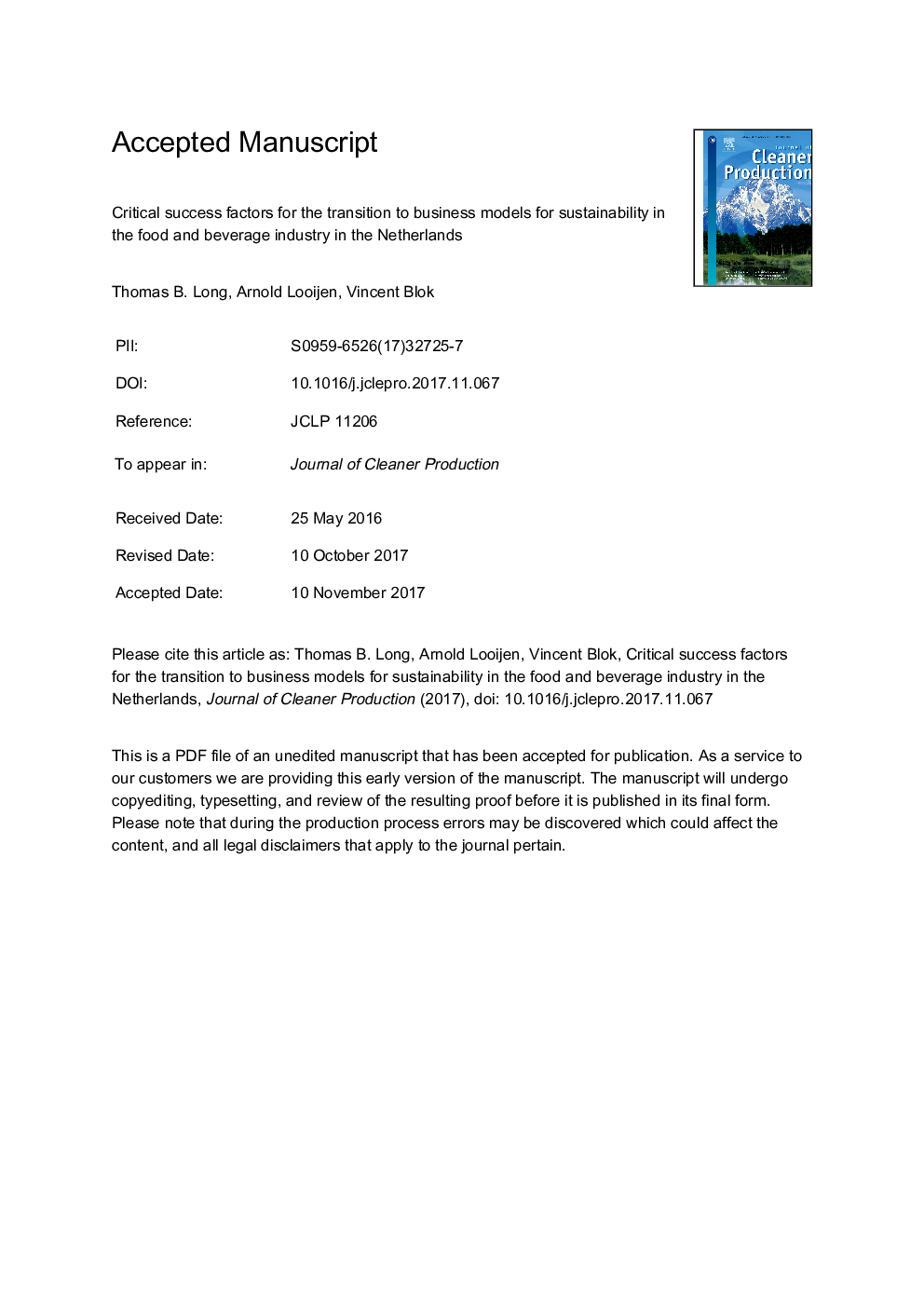| Article ID | Journal | Published Year | Pages | File Type |
|---|---|---|---|---|
| 8098925 | Journal of Cleaner Production | 2018 | 32 Pages |
Abstract
The research focuses on start-ups and small and medium-sized enterprises (SME's) in the Dutch food and beverage industry. This is an interesting empirical context, as this is a dynamic, economically significant sector in the Netherlands, and is under pressure to improve its environmental performance. Data is collected from 14 cases, using semi-structured interviews, and is then analysed to identify a range of critical success factors and barriers. We find that collaboration, a clear narrative and vision, continual innovation, a sustainable foundation, profitability, and serendipitous external events are all critical success factors for the transition to business models for sustainability. Barriers include external events, principle-agent issues as well as a lack of support from wider actors and systems. The results highlight that businesses wishing to develop a business model for sustainability must make sustainability the key principle upon which the firm is founded. Continual development and improvement is required in addition to the support of a range of different actor's external to the firm, such as suppliers, customers, and government.
Related Topics
Physical Sciences and Engineering
Energy
Renewable Energy, Sustainability and the Environment
Authors
Thomas B. Long, Arnold Looijen, Vincent Blok,
